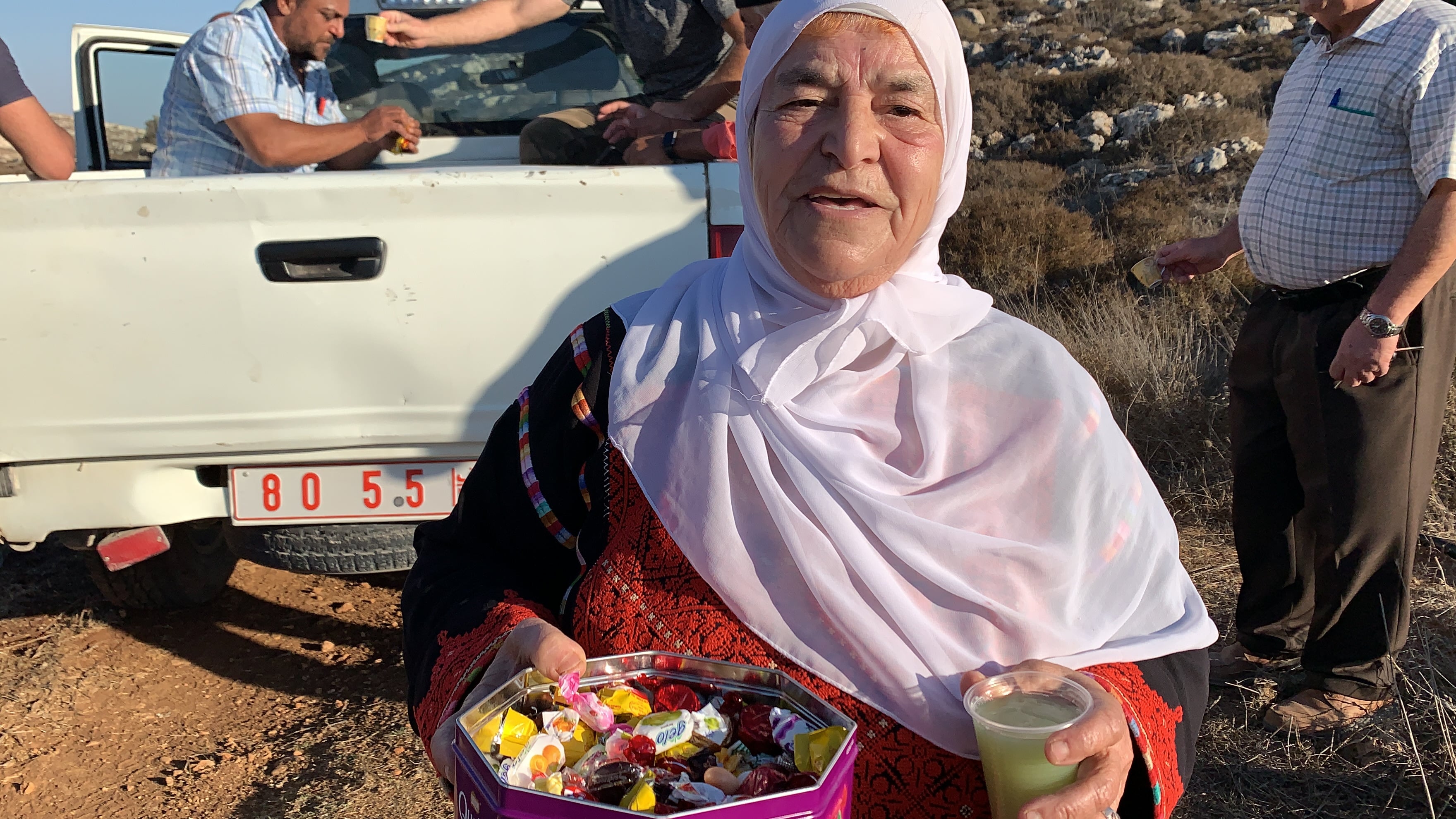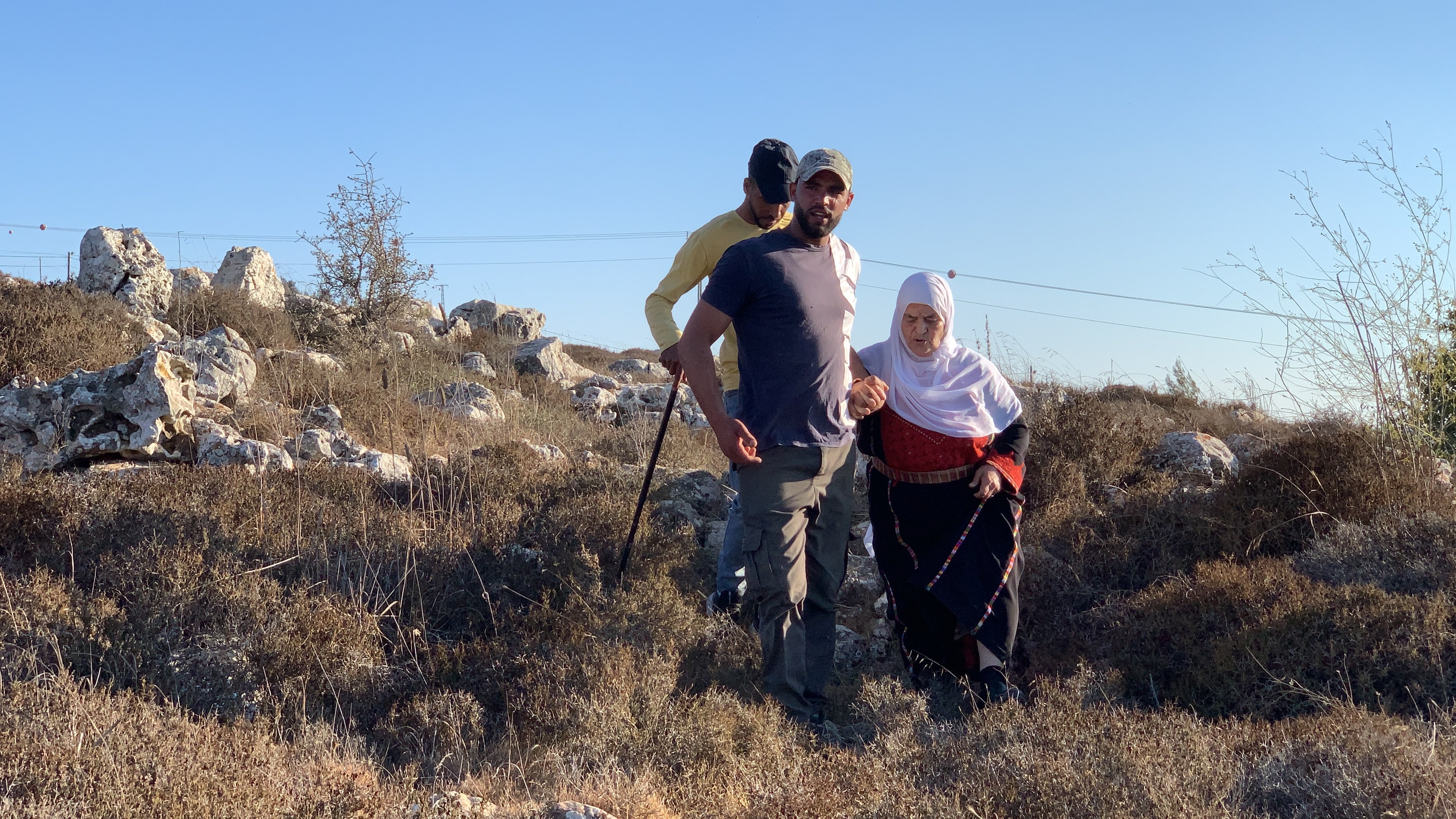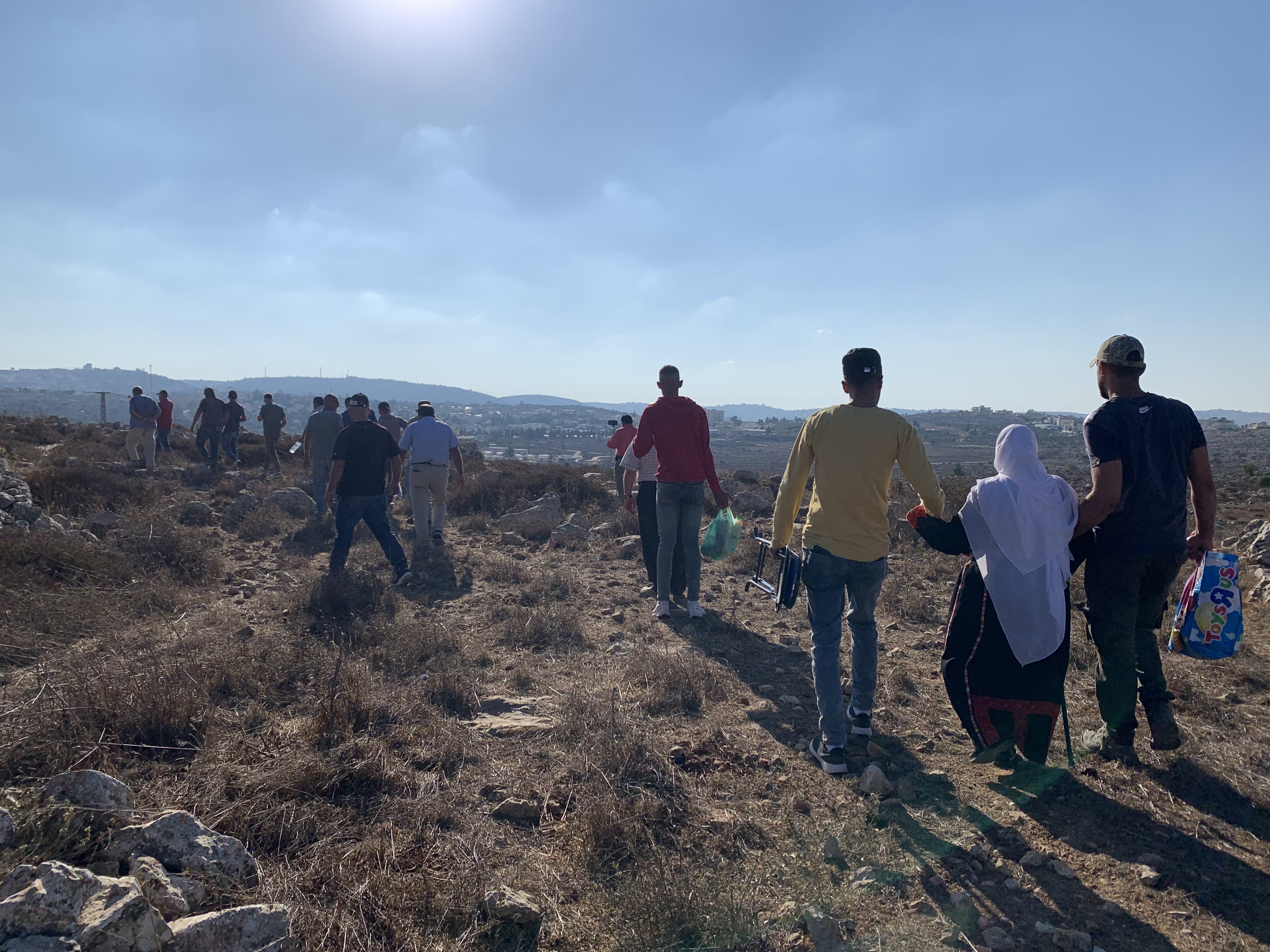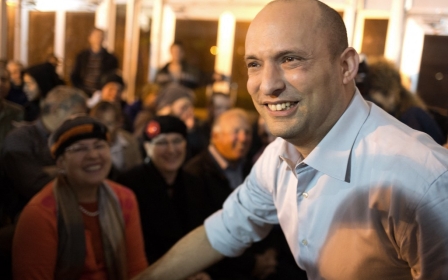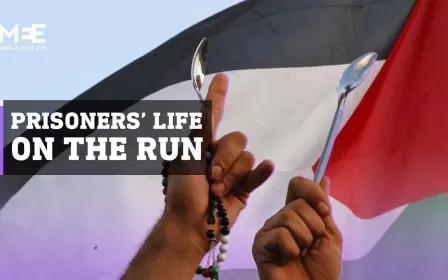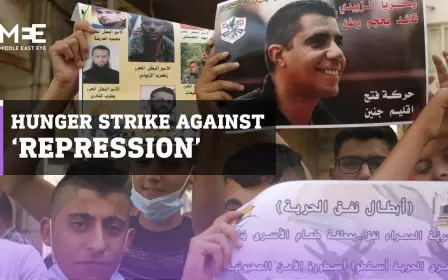Palestinian grandmother blocked from retrieved land seven years after court order
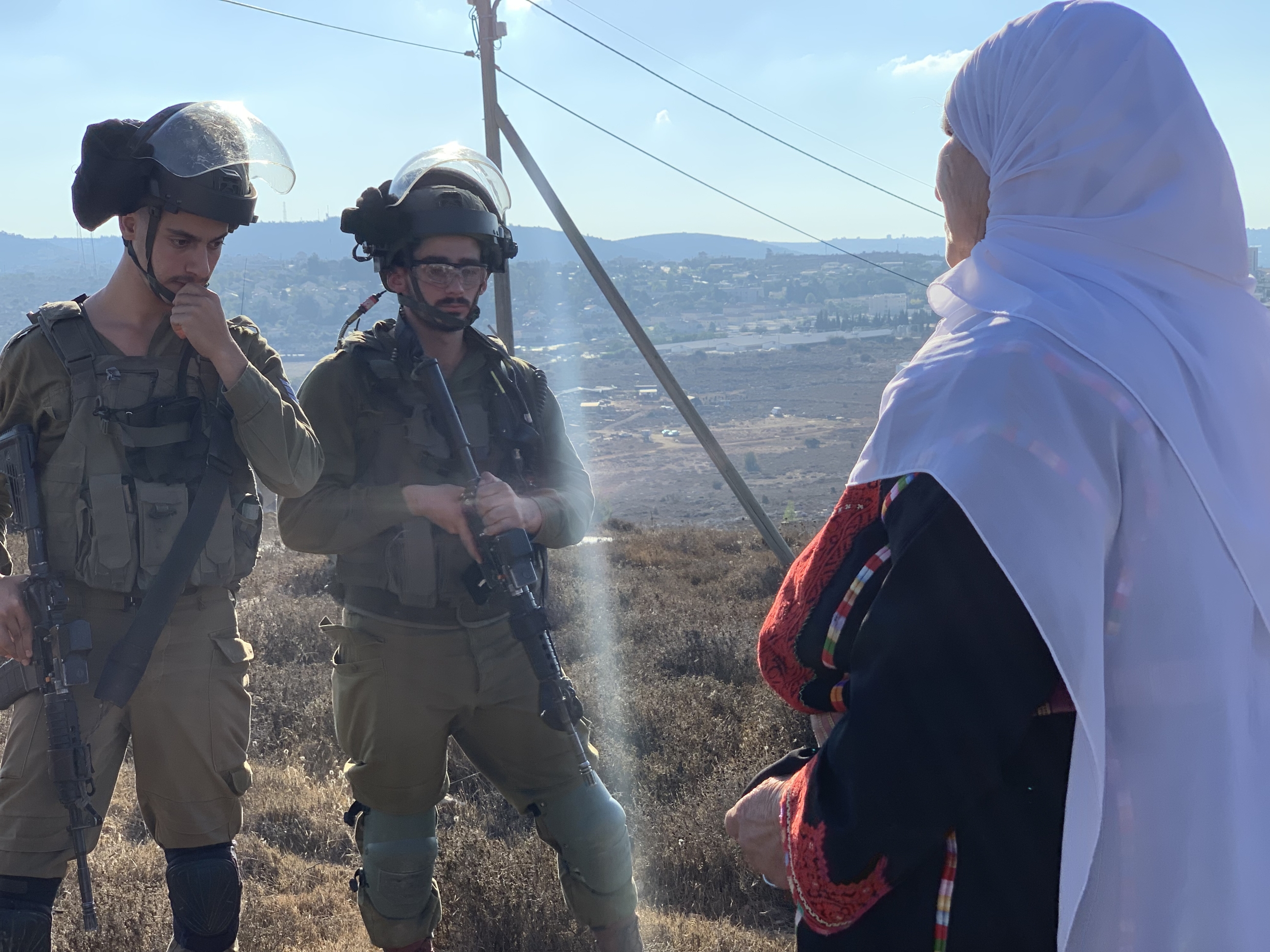
“I want to go back to my land before I die!” shouted Mariam Hassan Hammad, 80, at a group of Israeli occupation soldiers, who stood - armed from head to toe - blocking Palestinian landowners from reaching their lands in the Thahr al-Mazare’ area, northeast of Ramallah in the occupied West Bank.
The Palestinian landowners, including Mariam, were scheduled to enter their land on Saturday, 30 years after it was confiscated to build the illegal settlement of Ofra.
'Today, I am returning to my land after many years of deprivation. I feel alive'
- Mariam Hassan Hammad
The settlement was expanded in 1996 with the infamous outpost of Amona, which was evacuated following an Israeli court order in 2014.
On Saturday afternoon, the landowners headed towards their fields, carrying in their hands the Israeli Supreme Court’s order to return their lands in 2020, three years after the settlement of Amona was evacuated. Palestinians won the long court battles after managing to prove it was their private property upon which the outpost was built.
Mariam sat anxiously throughout the car ride from her hometown of Silwad, on her way to see the 25 dunams of land she inherited from her father.
New MEE newsletter: Jerusalem Dispatch
Sign up to get the latest insights and analysis on Israel-Palestine, alongside Turkey Unpacked and other MEE newsletters
Wearing one of her finest embroidered Palestinian thobes and a bright white headscarf, she fiddled with the prayer beads in her hand, in an attempt to relieve the nervousness.
Next to her was a box of sweets and a coffee thermos she brought for the day ahead.
“I feel like this is a holiday. Today, I am returning to my land after many years of deprivation. I feel alive," Mariam, a mother of ten children, and a grandmother to 25, told Middle East Eye.
'We will not despair'
The Thahr al-Mazare’ region falls between the Palestinian villages of Silwad, Ein Yabroud, and Taybeh. Despite its proximity, Israeli military and settlement infrastructure have cut it off from its natural geographic surroundings and made access to the area difficult.
All the roads that lead to it have been shut, so Mariam and her two grandchildren, as well as other landowners, made their way on foot after parking their cars.
With the excitement of a child, Mariam treaded quickly on her walking stick, supported by her grandson.
As they approached their land, a surprise lay waiting for them. A group of Israeli soldiers blocked the landowners from reaching their area.
Middle East Eye contacted the Israeli army for comment but had not received a response by the time of publication.
When the families presented the soldiers with the papers containing the court’s decision and requested that they be permitted to access their lands, they were met with sarcasm and were told to turn back.
The mayor of Silwad, Osama Hamed, who accompanied the residents, told MEE the “the army blocked us on the pretext that there are Jewish holidays now, which is an illogical argument”.
Hamed believes this is the first of what he expects will be many attempts by the army to continue blocking them from reaching their lands.
"We will not despair and will not stop trying,” he added, saying that if they need to, the families “will return to Israeli courts again” to extract their right to return to their lands.
According to Hamed, the area consists of 300 dunams (30 hectares), all of which are Palestinian private property. Following the 2014 court decision, settler groups sought to buy land from Palestinians who owned it – particularly those living in Jordan – and were able to purchase some 20-25 dunams in total.
Childhood memories
Back in the car, after being turned away, Mariam described her land’s significance to her.
“I grew up on this land – year after year. All the memories of my childhood were here on this land that my father purchased,” she said.
Her mother, she continued, gave birth to her in Thahr al-Mazare’, during the wheat harvest season.
'This land was our only source of livelihood. We would eat from its crops all year round'
- Mariam Hassan Hammad
“This land was in ruins - we planted, renovated and repaired it,” said Mariam, explaining that her family would cultivate the land with wheat, barley, and lentils one year, and the next with tomatoes green beans, and lubya (a type of bean).
“This land was our only source of livelihood. We would eat from its crops all year round.”
With little regard for dates, Mariam remembers her last day in the field with great detail.
“We were harvesting wheat when a group of Israeli soldiers arrived and asked us to leave,” she recalled. “I sensed that I would not be able to return, so I ran to the field and picked a bunch of wheat stalks, which I’ve held onto until today.”
Mariam also continues to keep a collection of old farming tools that belonged to her family.
She said that her family attempted to return to their land on several occasions, but when two Palestinian women – one from Silwad and the other from Ein Yabroud - were killed by the Israeli army while they were trying to access their lands, residents became afraid and stopped trying.
“For the first time, I came very close to my land,” said Mariam, describing the day's events as a victory regardless of being blocked.
“I will keep trying to retrieve my land, and to return to it with my children and grandchildren, no matter what it takes,” she continued.
“This land is dear to us; we will not give up on it or give it up.”
This article is available in French on Middle East Eye French edition.
Middle East Eye delivers independent and unrivalled coverage and analysis of the Middle East, North Africa and beyond. To learn more about republishing this content and the associated fees, please fill out this form. More about MEE can be found here.


